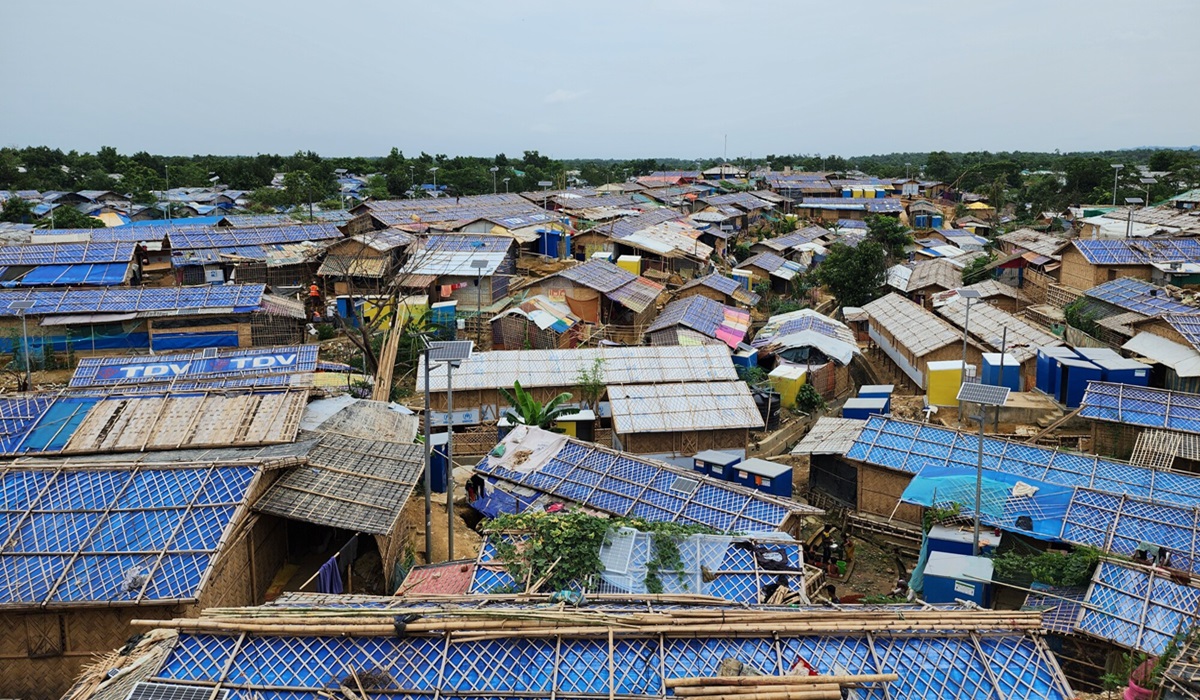International Support for Bangladesh’s Refugee Population Falls Short
- TDS News
- D.O.C Supplements - Trending News
- East Asia
- August 23, 2024

Image Credit, NRC
As Bangladesh approaches the seven-year mark since over 700,000 Rohingya fled Myanmar for safety, the country finds itself at a crucial crossroads. The interim government has reiterated its commitment to supporting the more than one million Rohingya refugees currently residing in the sprawling camps of Cox’s Bazar. While this pledge is commendable, it also opens the door to a broader discussion about the future of refugee protection in Bangladesh.
The Norwegian Refugee Council’s (NRC) country director, Wendy McCance, has highlighted the potential for Bangladesh to take a significant step forward by becoming a signatory to the 1951 Refugee Convention and its 1967 Protocol. Such a move would not only enhance the legal protections available to refugees within Bangladesh but also encourage greater international cooperation and support. Accession to the Convention would signal to the global community that Bangladesh is committed to upholding international standards for refugee protection, potentially unlocking new avenues of assistance and solidarity from other nations.
The situation on the Myanmar-Bangladesh border remains precarious. As the conflict in Myanmar continues to escalate, there are growing reports of communities being displaced and seeking refuge near the border. In light of these developments, there is an urgent call for the Bangladeshi government to ensure safe passage and access to humanitarian aid for those fleeing the violence. This is not just a matter of immediate relief but also a test of Bangladesh’s capacity and willingness to uphold the principles of humanitarianism in the face of ongoing regional instability.
Bangladesh’s role as host to one of the world’s largest refugee populations cannot be overstated. The sheer scale of the challenge requires not just local but international support. Despite the enormity of the task, the international community’s response has been underwhelming, with the 2024 Joint Response Plan (JRP) for the Rohingya refugee crisis only 35 percent funded as of July 31, 2024. This funding gap underscores the need for increased donor engagement to ensure that essential services in the camps—such as education, legal aid, shelter, and sanitation—are adequately provided. Additionally, there is a pressing need to develop long-term solutions that go beyond mere survival, including access to employment, education, and skills training for the Rohingya.
The prospect of repatriation for the Rohingya remains fraught with uncertainty. Given the volatile situation in Myanmar, any plans for their return must be approached with extreme caution, ensuring that repatriation is voluntary, informed, and conducted under safe conditions. The Rohingya themselves must have a say in their future, and their concerns and aspirations must be central to any discussions about their return to Myanmar.
Bangladesh stands at a pivotal moment. The decisions made in the coming months will not only shape the future of the Rohingya but will also define Bangladesh’s role in the global refugee landscape. By embracing the 1951 Refugee Convention and continuing to advocate for stronger international support, Bangladesh has the opportunity to reinforce its commitment to human rights and set an example for the world. However, this will require not just promises but concrete actions and a renewed sense of urgency from both Bangladesh and the international community. The world is watching, and the time for meaningful change is now.








